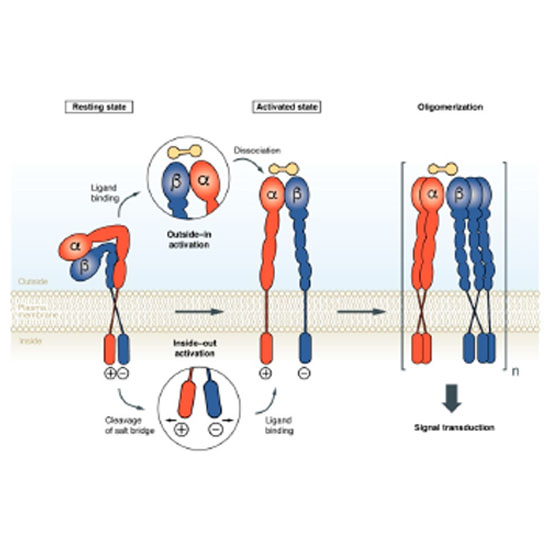Exploring the Role of RGD-Recognizing Integrins in Cancer
04-Sep-2017
Cancers 2017, 9(9), 116; https://doi.org/10.3390/cancers9090116
Cancers, online article
Integrins are key regulators of communication between cells and with their microenvironment. Eight members of the integrin superfamily recognize the tripeptide motif Arg-Gly-Asp (RGD) within extracelluar matrix (ECM) proteins. These integrins constitute an important subfamily and play a major role in cancer progression and metastasis via their tumor biological functions. Such transmembrane adhesion and signaling receptors are thus recognized as promising and well accessible targets for novel diagnostic and therapeutic applications for directly attacking cancer cells and their fatal microenvironment. Recently, specific small peptidic and peptidomimetic ligands as well as antibodies binding to distinct integrin subtypes have been developed and synthesized as new drug candidates for cancer treatment. Understanding the distinct functions and interplay of integrin subtypes is a prerequisite for selective intervention in integrin-mediated diseases. Integrin subtype-specific ligands labelled with radioisotopes or fluorescent molecules allows the characterization of the integrin patterns in vivo and later the medical intervention via subtype specific drugs. The coating of nanoparticles, larger proteins, or encapsulating agents by integrin ligands are being explored to guide cytotoxic reagents directly to the cancer cell surface. These ligands are currently under investigation in clinical studies for their efficacy in interference with tumor cell adhesion, migration/invasion, proliferation, signaling, and survival, opening new treatment approaches in personalized medicine











